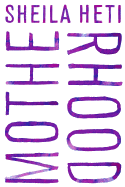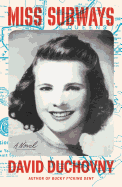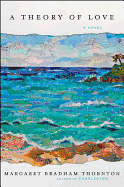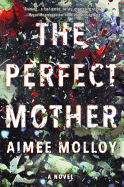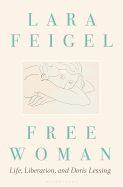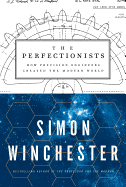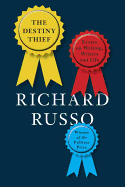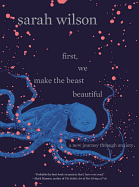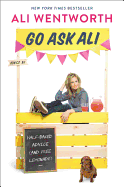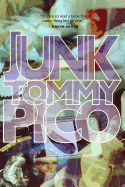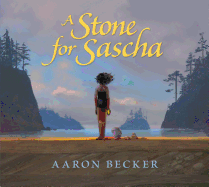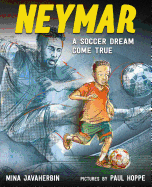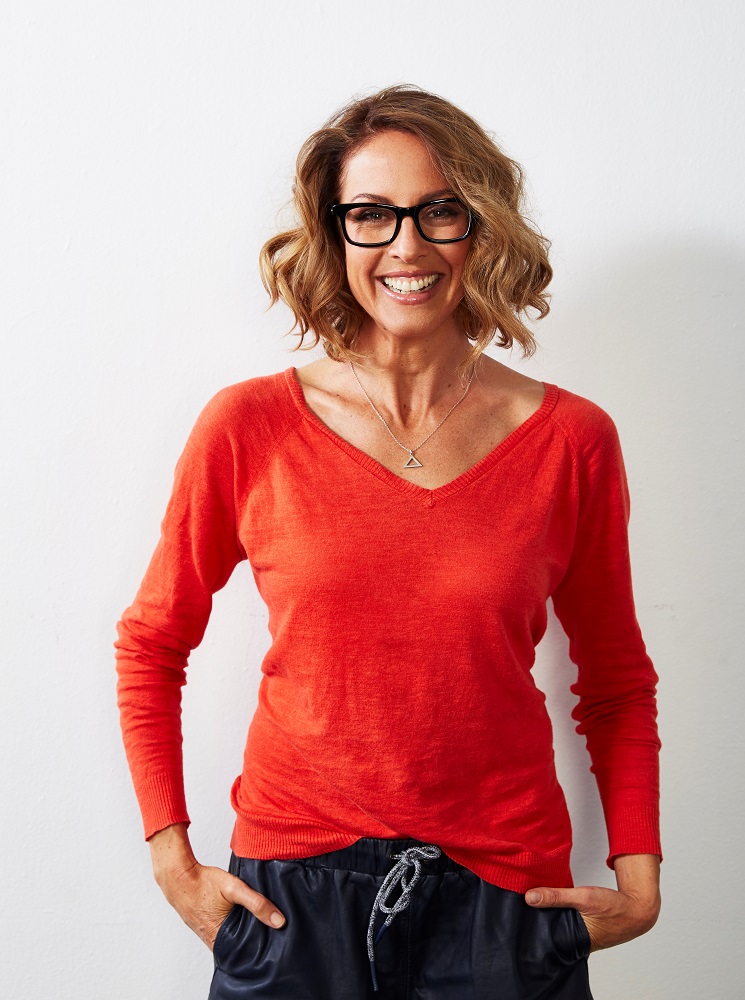 Sarah Wilson is a bestselling author (
Sarah Wilson is a bestselling author (I Quit Sugar
), former journalist and founder of Australia's largest digital wellness site. Her new book, First, We Make the Beast Beautiful: A New Journey Through Anxiety
(Dey Street Books, $25.99; reviewed below), is an account of living with anxiety, exploring how anxiety can shape relationships, treatments, successes and failures.
Could you explain your outlook on dealing with anxiety in an accepting way, rather than a "try to make it go away" approach?
A lot of books on the topic go as far as positioning anxiety as something that can be managed or modulated at best. We can learn to live with anxiety, has been the most helpful message. But this always struck me as, well, unsatisfying. It kept anxiety in the "disordered" model. My research found, wonderfully, that when you look into the evolutionary, spiritual and philosophical history of anxiety, you find that it actually serves a purpose. More than this, it's been the very "quirk" in our humanity's makeup that has seen us invent, create, lead a community through crises, etc. The inventors of some of the "craziest" things in history were often bipolar. Crises leaders were often phobic or OCD [obsessive compulsive disorder]. By seeing the beauty of "the beast" in this way, we can then learn to not just live with anxiety, we can thrive with it. This is what I've done differently with The Beast.
Have you read Oliver Burkeman's The Antidote: Happiness for People Who Can't Stand Positive Thinking? It serves as something of a corrective for the self-help books that preach the quest for happiness as the end-all, be-all of the good life.
Yes, I have. And, in fact, Oliver has endorsed the U.K. edition of the book. My research found exactly that--"sitting in the discomfort" and the "is-ness" of life is where we can find something resembling true happiness (joy? purpose?). My argument in the book is that this is because we stop grasping inwards (which is anxiety-riddled) and we are forced to sit with ourselves, to come closer, to get still.
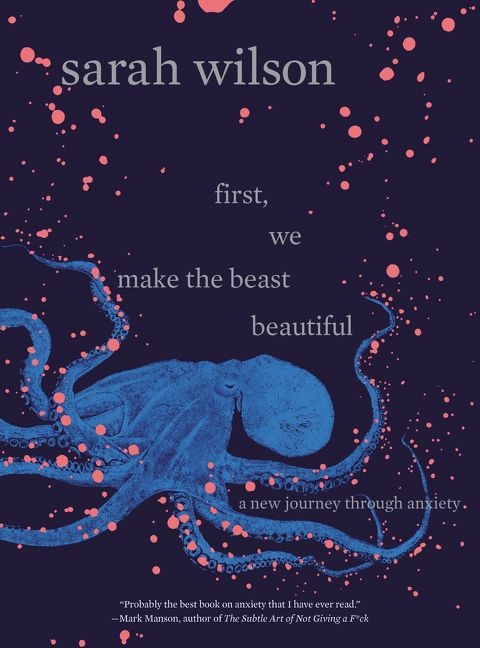 You pull from a range of sources for this book--theologians, pop culture, neuropsychologists, nutritionists, psychiatrists, laypersons, spiritual leaders, sports figures. You lay out many of the things you've learned in a non-prescriptive way: "Here's what this is about, see what you think." Is that "grazing through options" by design, or has it just developed from your own experience?
You pull from a range of sources for this book--theologians, pop culture, neuropsychologists, nutritionists, psychiatrists, laypersons, spiritual leaders, sports figures. You lay out many of the things you've learned in a non-prescriptive way: "Here's what this is about, see what you think." Is that "grazing through options" by design, or has it just developed from your own experience?
One of the things I suggest in the book is to learn more about different theories... and to accept the uncertainty of not knowing, of there not being one answer. It's the journey to find out that counts. I also think the didactic approach has been done to death. I didn't want this to be yet another self-help book (which generally steer readers away from helping themselves to following the dictates of a self-professed guru). I think the world needs more authentic inspiration.
How would you direct an acquaintance, let's say, in choosing a therapist to work with? What would be the "things to look for?"
I don't think I've worked out the formula for this. They say it takes someone with bipolar disorder five to seven therapists before they find the one that works for them. I think just knowing this is helpful. Me, I generally ask like-minded friends for recommendations. In therapy, I challenge myself to... be challenged. When you're an A-type, high-functioning anxious control freak, you tend to think you know it all, right? In therapy, it's very important to look for someone who will challenge your control, your ideas, your theories. This is what we need to continue the journey. It's deeply uncomfortable, but discomfort is a sign you're on the right track! --Matthew Tiffany
Sarah Wilson: Redefining How We Deal with Anxiety
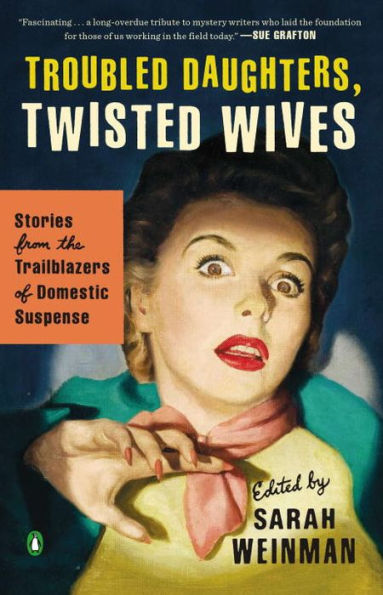 In her anthology Troubled Daughters, Twisted Wives (Penguin Books, $17), editor Sarah Weinman collects short works of crime fiction by women about women. She credits the authors collected here with inspiring the contemporary generation of women crime writers, pushing forward a genre she calls domestic suspense.
In her anthology Troubled Daughters, Twisted Wives (Penguin Books, $17), editor Sarah Weinman collects short works of crime fiction by women about women. She credits the authors collected here with inspiring the contemporary generation of women crime writers, pushing forward a genre she calls domestic suspense.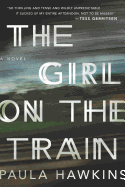 There's no shortage of bestsellers that fall squarely into this category--how many times have we heard a psychological thriller touted as "the next Gone Girl!" or "The Girl on the Train meets Big Little Lies." Certainly, all of these books are excellent in their own right, but for those looking to explore the genre, we offer a few suggestions:
There's no shortage of bestsellers that fall squarely into this category--how many times have we heard a psychological thriller touted as "the next Gone Girl!" or "The Girl on the Train meets Big Little Lies." Certainly, all of these books are excellent in their own right, but for those looking to explore the genre, we offer a few suggestions: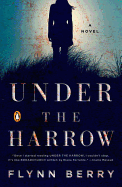 In her debut novel, Under the Harrow (Penguin Books, $16), Flynn Berry takes a straightforward murder mystery and imbues it with a complicated sense of grief, loss and the aftermath of trauma. In The Widow (Berkley, $16), Fiona Barton (whose second novel, The Child, (Berkley, $16), was also widely praised), approaches the story of a suspected child murderer through the lens of his widow's experience.
In her debut novel, Under the Harrow (Penguin Books, $16), Flynn Berry takes a straightforward murder mystery and imbues it with a complicated sense of grief, loss and the aftermath of trauma. In The Widow (Berkley, $16), Fiona Barton (whose second novel, The Child, (Berkley, $16), was also widely praised), approaches the story of a suspected child murderer through the lens of his widow's experience.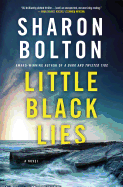 Sharon Bolton's Little Black Lies (Minotaur, $16.99) plays with narrative voice, telling the story of a series of missing children from three viewpoints: a woman who lost her two sons in a freak accident, the woman responsible for their deaths and a veteran suffering from PTSD. Attica Locke sets a murder on an old Louisiana plantation in The Cutting Season (Harper Perennial, $15.99), embedding a whodunit-style mystery within the larger contexts of racism and immigration in the Deep South.
Sharon Bolton's Little Black Lies (Minotaur, $16.99) plays with narrative voice, telling the story of a series of missing children from three viewpoints: a woman who lost her two sons in a freak accident, the woman responsible for their deaths and a veteran suffering from PTSD. Attica Locke sets a murder on an old Louisiana plantation in The Cutting Season (Harper Perennial, $15.99), embedding a whodunit-style mystery within the larger contexts of racism and immigration in the Deep South.



 You pull from a range of sources for this book--theologians, pop culture, neuropsychologists, nutritionists, psychiatrists, laypersons, spiritual leaders, sports figures. You lay out many of the things you've learned in a non-prescriptive way: "Here's what this is about, see what you think." Is that "grazing through options" by design, or has it just developed from your own experience?
You pull from a range of sources for this book--theologians, pop culture, neuropsychologists, nutritionists, psychiatrists, laypersons, spiritual leaders, sports figures. You lay out many of the things you've learned in a non-prescriptive way: "Here's what this is about, see what you think." Is that "grazing through options" by design, or has it just developed from your own experience?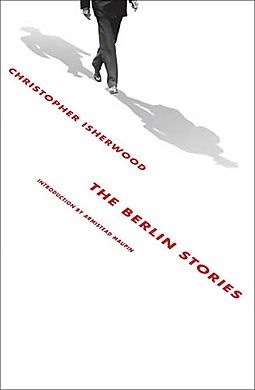 English-American author Christopher Isherwood (1904-1986) is best known for The Berlin Stories, a book of two semi-autobiographical novellas, Goodbye to Berlin and Mr Norris Changes Trains, based on Isherwood's time in the Weimar Republic. The Berlin Stories were the basis for John Van Druten's play I Am a Camera (1951), which was adapted into a film in 1955, and was the basis for the 1966 musical Cabaret, which itself became a film in 1972.
English-American author Christopher Isherwood (1904-1986) is best known for The Berlin Stories, a book of two semi-autobiographical novellas, Goodbye to Berlin and Mr Norris Changes Trains, based on Isherwood's time in the Weimar Republic. The Berlin Stories were the basis for John Van Druten's play I Am a Camera (1951), which was adapted into a film in 1955, and was the basis for the 1966 musical Cabaret, which itself became a film in 1972.